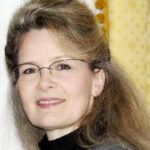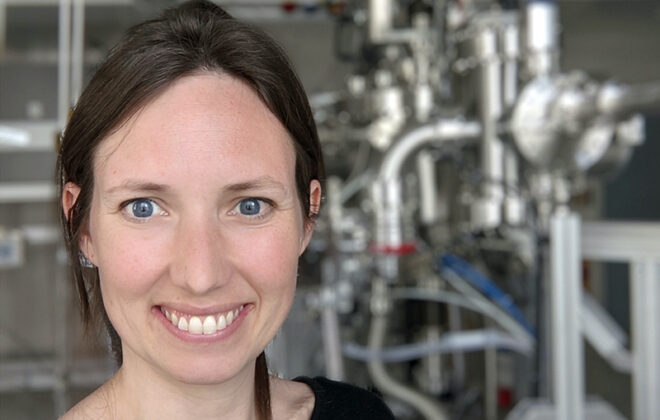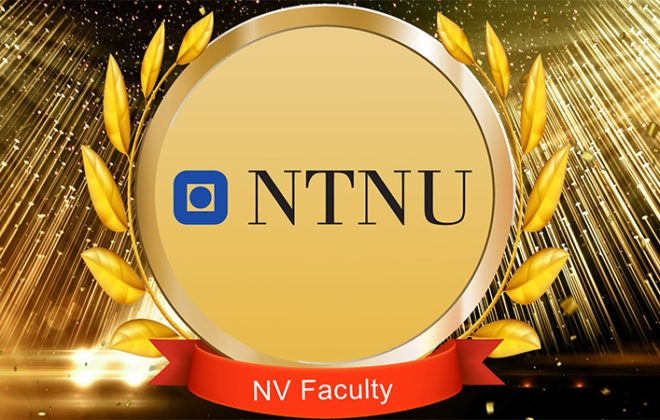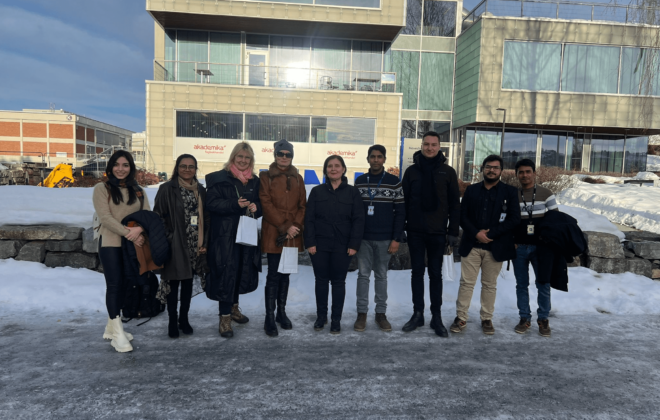Training the engineers of the future
How can we give our students an international network, and prepare them for careers as creative engineers, skilled at sharing their ideas and knowledge? We have found one recipe for success.
Materials science is an important topic that we relate to in many different parts of our society. The engineers of the future need various skills and a broad, interdisciplinary network in order to solve present and future challenges and create new opportunities.
Within the field of metallurgy, three Nordic universities combine their forces to organize a unique international seminar for their students. This has been done for the last 24 years, with great success.
This year, the seminar was held at NTNU in Trondheim by the Department of Materials Science and Engineering. The other collaborating universities are the Royal Institute of Technology in Stockholm and Aalto University in Helsinki.
Preparing for the challenges of the 21st century
November 20-21, 32 Nordic students met in Trondheim to investigate a specific topic in the field of material science. The goal of the seminar was to facilitate the students’ international networking, and to train them in presenting their own work and commenting on other’s.
We are convinced that this also will lead to more innovative and creative engineers, and the students seem to agree.
The final words from the students were:
This is a once in a lifetime experience, preparing us for what is to come, for most of us, very soon – the life of an engineer and the challenges of the 21st century.

All the students participating in the seminar, as well as the seminar organizer from NTNU Prof. Ragnhild E. Aune and the main responsible for the KTH students Assistant Prof. Christopher Hulme-Smith, at the Old Town Bridge (Gamle Bybro). Photo: Caroline Sindland

Prof. Ragnhild E. Aune and Head of Department Jostein Mårdalen welcomed the students. The students were divided into groups and encouraged to get to know each other – possibly making new professional connections for life. Photo: Gabriella Tranell
Students as opponents
The seminar required active participation from the students. All students presented their research work for each other through both oral presentations and posters. One student (or in some cases a group of two students) was appointed as opponent for each student presentation.
This was a unique opportunity for the students to develop their academic skills and simultaneously gain new knowledge in the field of metallurgy. They discussed questions related to their work and developed new professional contacts during the two-day seminar. The students were well prepared and actively participated in the seminar program.
In total 29 presentations where delivered during the seminar, each with a duration of 15 minutes, leaving 5 minutes for questions. It is a valuable experience to give a presentation for an audience of students and teachers from foreign universities.
Benjam in Dale Hosum from NTNU presented his work on “Reduction Rate of Silicomanganese Slag with Different Carbon Materials” with Guo Feng and Libang Lai from KTH acting as opponents. Associate Prof. Jafar Safarian was the chairman of the session. Photo: Christopher Hulme-Smith.
in Dale Hosum from NTNU presented his work on “Reduction Rate of Silicomanganese Slag with Different Carbon Materials” with Guo Feng and Libang Lai from KTH acting as opponents. Associate Prof. Jafar Safarian was the chairman of the session. Photo: Christopher Hulme-Smith.
The seminar is a yearly event, and part of a long collaboration between NTNU, the Royal Institute of Technology (KTH), Stockholm, and Aalto University (Aalto), Helsinki. The three Nordic universities have taken turns in hosting the seminar with great success.
This was the 24th time the seminar was organized. The host at NTNU is the Resources, Energy & Environment research group at IMA. This year the visiting students came from KTH, unfortunately Aalto could not join this year due to travel prohibition but have promised to join again next year.
Best poster, best presentation and best opponent were awarded:
 The winners of the seminar (from left to right): Magnus Kyrre Windfeldt from NTNU – Best Opponent; Henrietta Isaksson from KTH – Best Presentation; Hans-Henrik König from KTH – Best Poster. Photo: Christopher Hulme-Smith
The winners of the seminar (from left to right): Magnus Kyrre Windfeldt from NTNU – Best Opponent; Henrietta Isaksson from KTH – Best Presentation; Hans-Henrik König from KTH – Best Poster. Photo: Christopher Hulme-Smith
The topics of the best oral- and poster presentations of the seminar.
Promoting interdisciplinary research
 As already stated, materials science is an important topic that we relate to in many different parts of our society. The last presentation of the seminar proved that with an interesting talk by Isha Patankar from KTH on the topic of “Materials Selection for Signposts on Paulet Island”.
As already stated, materials science is an important topic that we relate to in many different parts of our society. The last presentation of the seminar proved that with an interesting talk by Isha Patankar from KTH on the topic of “Materials Selection for Signposts on Paulet Island”.
The aim of the work presented by Isha Patankar from KTH was to select a suitable material for supporting poles and a plaque commemorating the Argentinian-Swedish historical archeological expedition to Paulet Island in January 2020.
In view of the Adélie penguins, Blue-eyed shags, Weddell seals, and Gulls living at the island environmental, ethical and economic impact was to be considered. Photo: Christopher Hulme-Smith
Scientific and social program
The program was also partly social, in order to give the students opportunity to get to know each other and have time for networking. The first seminar day ended with a Mini-Golf match between six mixed teams (with representatives from both universities) and dinner. The overall winner was Filippo Pellegrini from KTH.
 Fruitful conversations between peers from both NTNU and KTH, as well as across boarders with several students from the international MSc programs and from the Erasmus+ mobility program participating in the seminar. Photo: Gabriella Tranell
Fruitful conversations between peers from both NTNU and KTH, as well as across boarders with several students from the international MSc programs and from the Erasmus+ mobility program participating in the seminar. Photo: Gabriella Tranell
Next year, KTH have invite students from NTNU and Aalto to Stockholm for the 25th seminar in the series.

Ragnhild E. Aune
Ragnhild E. Aune is a professor at the Department of Materials Science and Engineering
Search
Søk
Categories
- Arctic Research
- Arkitektur
- Bærekraft
- Bioingeniørfag
- Biologi
- Biology
- Biomedical Laboratory Science
- Biotechnology
- Bioteknologi
- Chemical Engineering
- Chemistry
- Climate
- Computer Science
- Datateknologi
- Digital
- Elektronikk
- Energi
- Energi
- Energy
- Engineering
- Engineering
- Environment
- Food Science
- Forskning
- Fysikk
- Fysikk
- Havbruk
- Informasjonsteknologi
- Informasjonsteknologi
- Ingeniørvitenskap
- Kjemi
- Kjemisk prosessteknologi
- Kjemisk prosessteknologi
- Kreftbehandling
- Kybernetikk
- Marine Technology
- Materialer
- Materials Science
- Materialteknologi
- Matvitenskap
- Meninger
- Miljø
- Min ph.d.
- My PhD
- My PhD
- My postdoc
- Nanotechnology
- Nanoteknologi
- Ocean
- Oil and gas
- Physics
- Research
- Simulering og visualisering
- Spør en forsker
- Studentliv
- Sustainability
- Ukategorisert
- Universitetsliv
- University Life
Kategorier
- Arctic Research
- Arkitektur
- Bærekraft
- Bioingeniørfag
- Biologi
- Biology
- Biomedical Laboratory Science
- Biotechnology
- Bioteknologi
- Chemical Engineering
- Chemistry
- Climate
- Computer Science
- Datateknologi
- Digital
- Elektronikk
- Energi
- Energi
- Energy
- Engineering
- Engineering
- Environment
- Food Science
- Forskning
- Fysikk
- Fysikk
- Havbruk
- Informasjonsteknologi
- Informasjonsteknologi
- Ingeniørvitenskap
- Kjemi
- Kjemisk prosessteknologi
- Kjemisk prosessteknologi
- Kreftbehandling
- Kybernetikk
- Marine Technology
- Materialer
- Materials Science
- Materialteknologi
- Matvitenskap
- Meninger
- Miljø
- Min ph.d.
- My PhD
- My PhD
- My postdoc
- Nanotechnology
- Nanoteknologi
- Ocean
- Oil and gas
- Physics
- Research
- Simulering og visualisering
- Spør en forsker
- Studentliv
- Sustainability
- Ukategorisert
- Universitetsliv
- University Life




